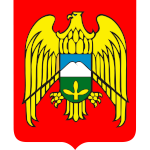Day of the Revival of the Balkar People Date in the current year: March 28, 2026
 The Day of the Revival of the Balkar People is an annual observance celebrated on March 28 in Kabardino-Balkaria, an autonomous republic within the Russian Federation. It commemorates the return of the Balkar people to their ancestral homeland after 13 years of exile.
The Day of the Revival of the Balkar People is an annual observance celebrated on March 28 in Kabardino-Balkaria, an autonomous republic within the Russian Federation. It commemorates the return of the Balkar people to their ancestral homeland after 13 years of exile.The Balkars are a Turkic people inhabiting mainly mountainous and foothill regions of the central part of the North Caucasus and speaking the Karachay-Balkar language. Today, their total number is about 125 thousand people, the overwhelming majority of whom (over 180 thousand people) live in Kabardino-Balkaria.
The Balkars have supposedly been living in the area since the 11th century. After the Russian conquest of the Caucasus in the first half of the 19th century, they asked to become Russian citizens, and were granted their request. In 1921, the historical regions of Kabarda and Balkaria became part of the Mountain Autonomous Soviet Socialist Republic within the Russian SFSR. The next year, they merged to form the Kabardino-Balkarian Autonomous Oblast, which was transformed into the Kabardino-Balkarian ASSR in 1936.
In 1942, a significant part of Kabardino-Balkaria was occupied by German troops, but the Red Army liberated the Kabardino-Balkarian ASSR in early 1943. The next year, the chief of NKVD (the interior ministry) Lavrentiy Beria ordered the deportation of Balkars to Kazakhstan and Central Asia, which was approved by Joseph Stalin.
The official reason for deportation was the supposed collaboration of the Balkars with the Nazis. However, in reality the expulsion of Balkars was part of a forced settlement program and population transfer that affected millions of people belonging to Soviet ethnic minorities. The order to begin the deportation of the Balkars was issued in the early morning of March 8, 1944.
In about two hours, the entire Balkar population was transported to Nalchik (the capital of the Kabardino-Balkarian ASSR). From there, they were deported to Kazakhstan, Kyrgyzstan, Tajikistan, Irkutsk Oblast and the Far North in train convoys. After the deportation, the Kabardino-Balkarian ASSR was renamed the Kabardian ASSR.
In total, almost 38,000 Balkars were deported; according to official documents, more than 500 of them died from hunger, cold and disease while being transported to their destinations, and thousands more died while in exile. The deported Balkars lost practically all their property, but what is more tragic is that they last contact with their ancestral homeland for more than a decade, which caused the political, social-economic and cultural development of the entire ethnic group to slow down. Due to the deportation, many Balkars were cut off from their relatives, who were forced to settle in other regions.
The situation began to change after Stalin’s death in 1953, but not immediately. In April 1956, the Presidium of the Supreme Soviet of the USSR adopted a decree that lifted the settlement restrictions for the deported peoples, and the first Balkars began to return home. On March 28, 1957, the Kabardian ASSR was officially renamed back to the Kabardino-Balkarian ASSR. The anniversary of this event is now celebrated as the Balkar People Revival Day.
The Day of the Revival of the Balkar People was officially established by President of Kabardino-Balkaria Valeriy Kokov in 1994. It is marked with concerts, performances, exhibitions, sports competitions, horse races, car races, and other events held across the Kabardino-Balkarian Republic.
- Category
- Anniversaries and Memorial Days
- Country
- Russia
- Tags
- Day of the Revival of the Balkar People, holidays in Kabardino-Balkaria, holidays in Russia, regional observances